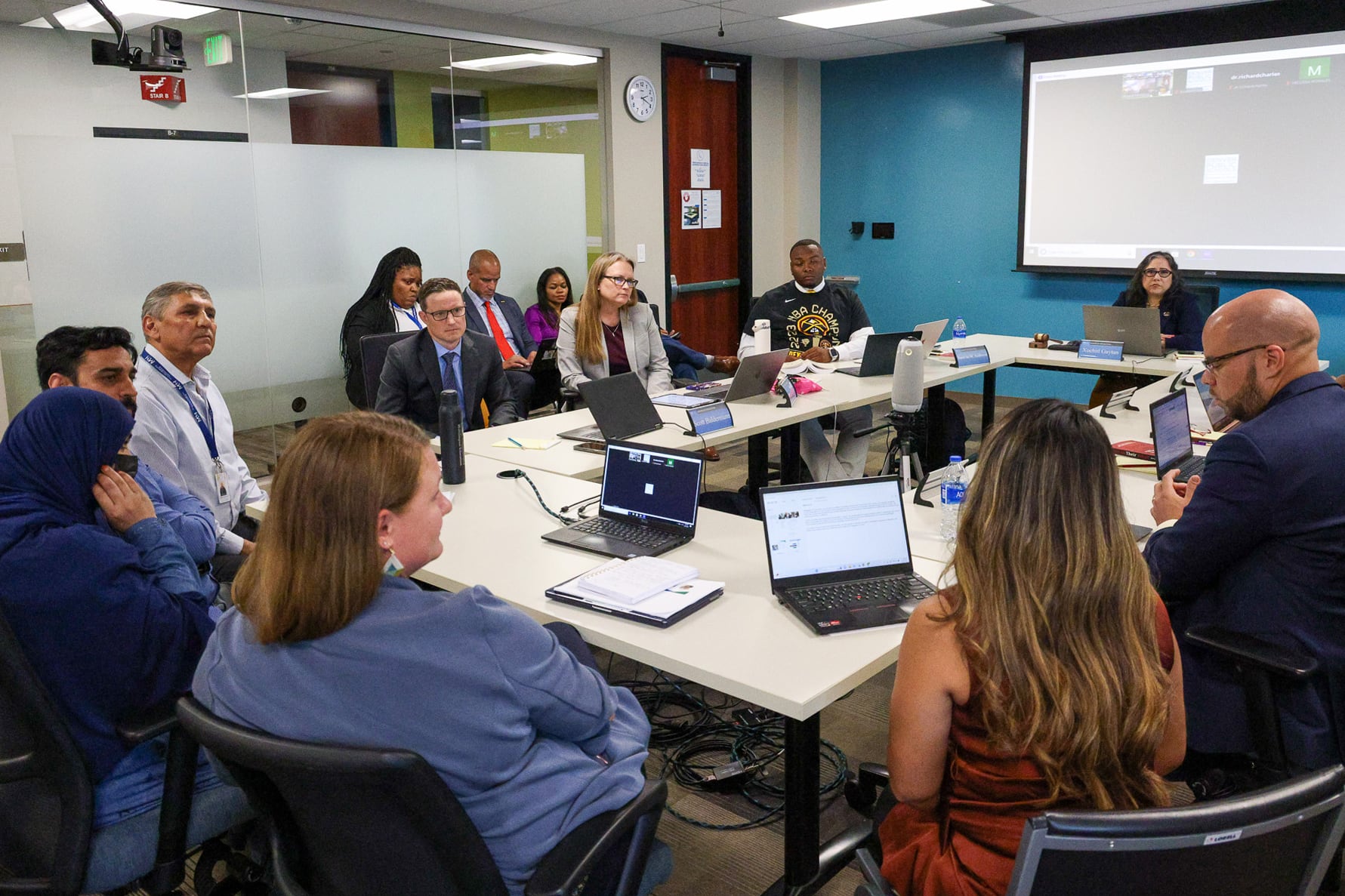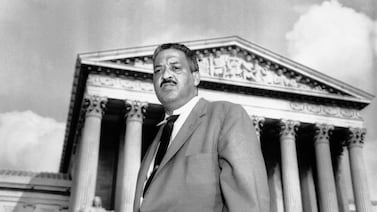Sign up for Chalkbeat Colorado’s free daily newsletter to keep up with education news in Denver and around the state.
Denver school board Vice President Auon’tai Anderson says he no longer wants a waiver from a board policy that bars sitting members from working for Denver Public Schools.
The board planned to vote on temporarily suspending its conflict-of-interest policy Thursday but pulled the issue from its meeting agenda.
Anderson and two other board members, Scott Esserman and Michelle Quattlebaum, had requested that the board vote on suspending the policy, which would have allowed Anderson to take a job with the district. Anderson, who previously worked for DPS as a restorative practices coordinator, said earlier this week that he wanted to return to working for the district in the months before his school board term ends in November.
But on Wednesday, Anderson said his situation had changed.
“I’ve accepted a contract with a client that will last through the end of my term and I’m excited to join TEAM DPS later this fall!” Anderson texted to Chalkbeat.
The board has paused the policy before to allow newly elected members to finish the semester at their DPS jobs. But this would have been the first time the board considered suspending the policy to allow a sitting member to take a job in the district.
Anderson said he has been working for the past several months as a political and educational consultant. A DPS graduate, he was first elected to the school board in 2019. After initially announcing last year that he’d run for reelection, he said in June that he was withdrawing from the school board race to run for the state House of Representatives.
Melanie Asmar is a senior reporter for Chalkbeat Colorado, covering Denver Public Schools. Contact Melanie at masmar@chalkbeat.org.








